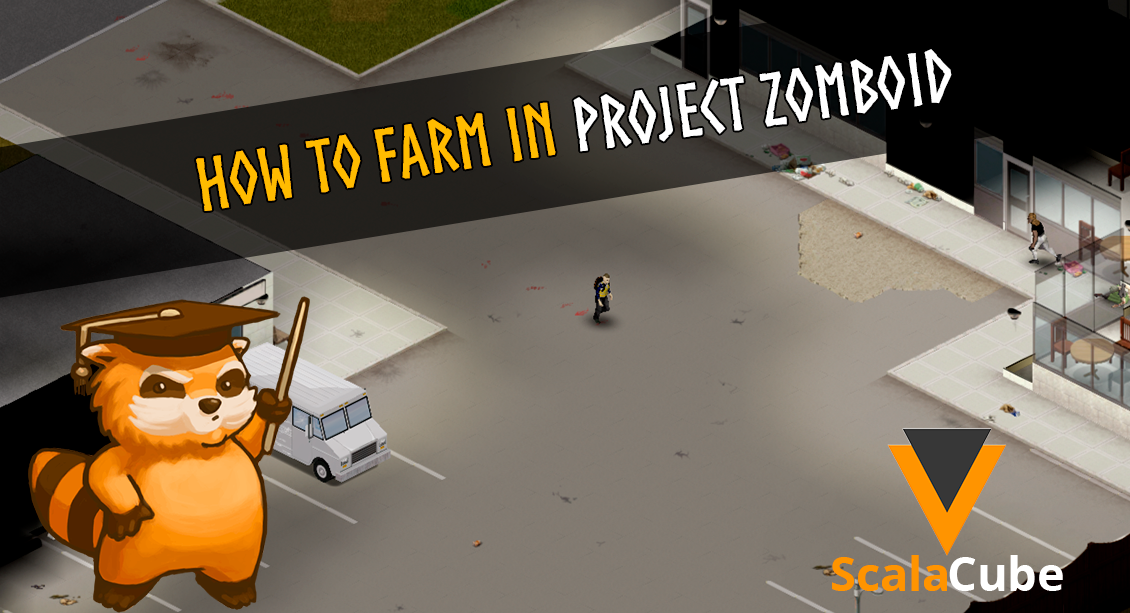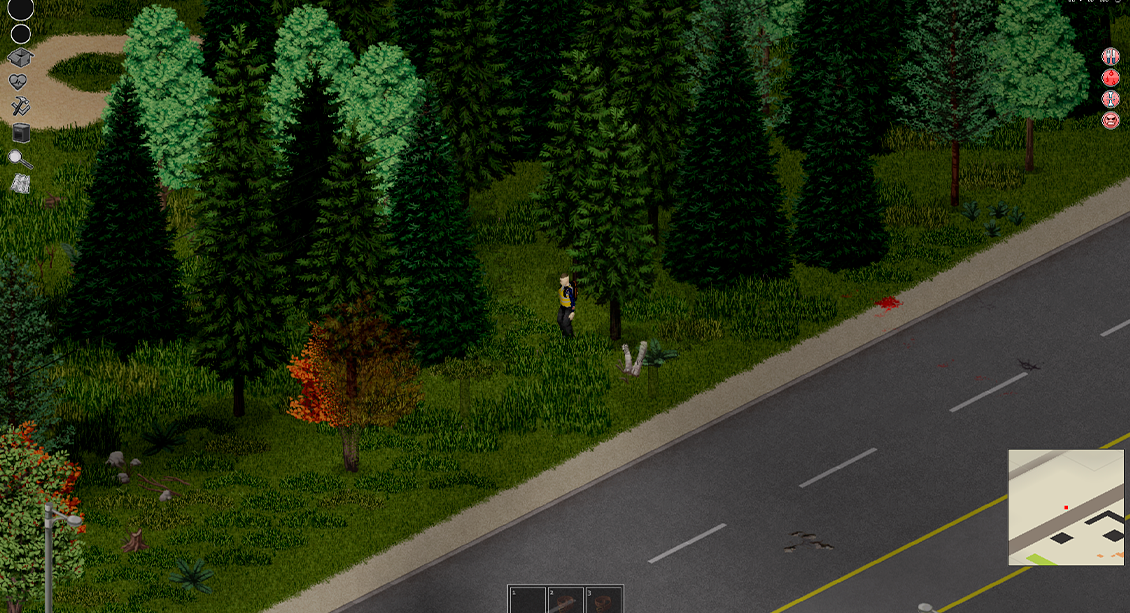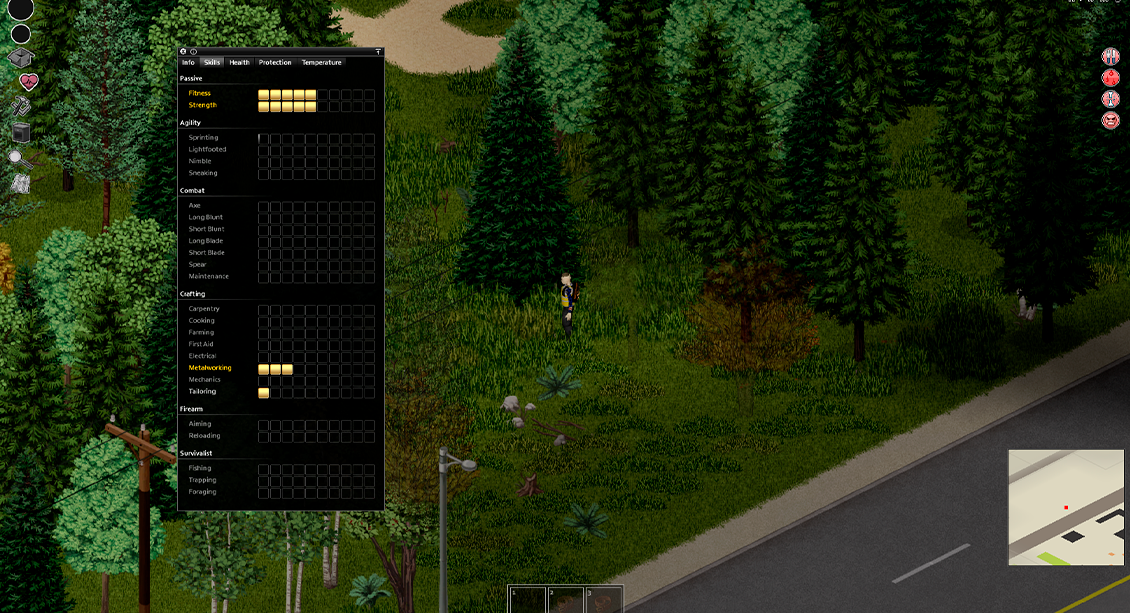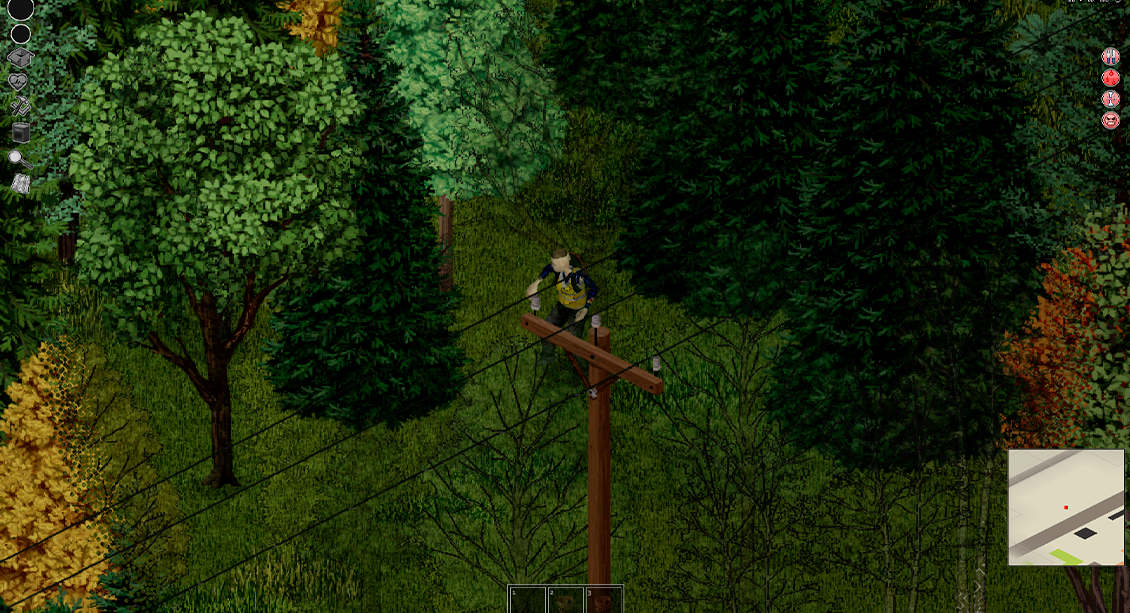How To Farm in Project Zomboid

Make Your Own Project Zomboid Server
You might have encountered yourself searching for food while playing Project Zomboid. The game fortunately includes a comprehensive agricultural system, enabling players to cultivate their own food and attain self-reliance.
Here is all the information you require to begin farming in Project Zomboid. But first, don’t forget to choose the Best server hosting for Project Zomboid!
Getting Started: Plowing and Sowing Seeds
Preparing the soil is the first phase in farming in Project Zomboid. To accomplish this, the dirt is plowed using a trowel. It's time to grab some seeds and open the packet after the soil has been prepped. Seeds are available through agricultural looting or scavenging in the area.Right-click on the plowed ground and choose "sow seed" to plant the seeds. After planting seeds, water them using a tool such as a watering can. Pay attention to the soil's moisture levels since excess moisture can lead to root rot, and inadequate moisture can result in plants wilting and dying.

The Farming Skill and Seasons
In Project Zomboid, the seasons system and the Farming skill both have an impact on farming. Players have the ability to use a trowel to plant seeds as part of a system added to Project Zomboid in RC2.9 to establish a long-lasting method of gathering food. Your degree of expertise in farming will rise as you earn experience, and you'll be able to plant more sophisticated crops.According to Project Zomboid's seasonal structure, crops will produce more in the summer than the winter. As a result, it's critical to prepare ahead of time and select crops that complement your playstyle and the season. Certain crops, like lettuce and spinach, are viable year-round, while the prime season for planting crops like pumpkins and watermelons is summer.

Time Investment
It takes a varying amount of time and money to successfully farm each crop in Project Zomboid. For example, broccoli requires 30 days to be harvested, cabbage takes 14 days, carrots need 15 days, and potatoes demand 26 days. It's crucial to prepare in advance and pick crops that go with your playstyle and the season.Players need the right equipment to farm in addition to the time commitment. Planting seeds requires a trowel, and soil preparation needs a shovel. A water bottle is also essential for maintaining crop hydration. These things can be made with the right resources or discovered around the game's area.

The Importance of Farming in Project Zomboid
In Project Zomboid, farming is a crucial component of gameplay because it enables players to meet their nutritional demands for the duration of the post-apocalyptic world. Farming can be a useful source of fresh food because the game's hunger and thirst rules are some of the hardest to control.Farming can generate revenue in addition to serving as a steady supply of food. Your crops can be traded for other valuable items like weapons or medicine or sold to other survivors.
FAQ
When are my crops ready for harvest?
In Project Zomboid, the growth and maturation times of various crops vary. With a right-click, you may examine your crops to see how they're doing. This will display the number of days till the crop is ready for harvest.
Can I farm indoors or in a greenhouse?
In Project Zomboid, you can cultivate crops indoors or in a greenhouse. You'll need to create or locate a suitable structure that permits sunlight to penetrate in order to accomplish this. When you have a sufficient area, you can prepare the soil by plowing it, then plant your seeds just like you would outside.
Can I save seeds from my harvested crops?
In Project Zomboid, you can indeed preserve the seeds from the crops you've gathered. To achieve this, simply choose "extract seeds" from the context menu when you right-click on the harvested crop. In the future, you can cultivate new crops with these seeds.
Do I need to fertilize my crops?
In Project Zomboid, fertilizing your crops will speed up their growth and improve their production. Fertilize crops using compost generated from organic waste in a compost bin. You can apply the compost to your crops to supply nutrients once it is finished.
How do I protect my crops from zombies?
In Project Zomboid, zombies have the potential to harm your crops, making their defense crucial. To keep zombies out, you can erect fences around your crops or utilize barricades. In addition, you can deploy traps to get rid of zombies that approach your crops too closely.
Can I sell my crops to other survivors?
You can indeed sell your harvests to other Project Zomboid survivors. You can set up a market booth or conduct direct commerce with other survivors. Your crops' worth will depend on how uncommon they are and how valuable they are to other survivors.
Can I use hydroponics to grow crops?
Project Zomboid does not presently support hydroponics, although it might in the future. You can still utilize dirt to cultivate crops in a greenhouse or inside in the interim.
How do I deal with pests and diseases in my crops?
In Project Zomboid, sickness and pests can ruin your crops. Use fungicides to stop illnesses from spreading and pesticides to kill pests to avoid this. Crop rotation can also be used to avoid the accumulation of pests and illnesses in the soil.
Can I grow medicinal plants in Project Zomboid?
In Project Zomboid, you can grow medicinal plants. Consider growing chamomile, lavender, and aloe vera to reap the therapeutic rewards of these plants. These plants can be utilized to make teas and other remedies for various ailments.
How do I deal with extreme weather conditions?
In Project Zomboid, extreme weather events like heat waves and frost can harm your crops. You can use blankets to shield your crops from frost or shade fabric to block out excessive sunlight during heat waves to safeguard them. Additionally, you can select crops based on the season and weather at the time.
Final Thoughts
Project Zomboid farming may need some time and work, but it's worthwhile to ensure a consistent supply of fresh food. By having the proper tools and information, you can become self-sufficient and endure the zombie apocalypse. So take out your trowel and start working!Make Your Own Project Zomboid Server
Copyright 2019-2026 © ScalaCube - All Rights Reserved.